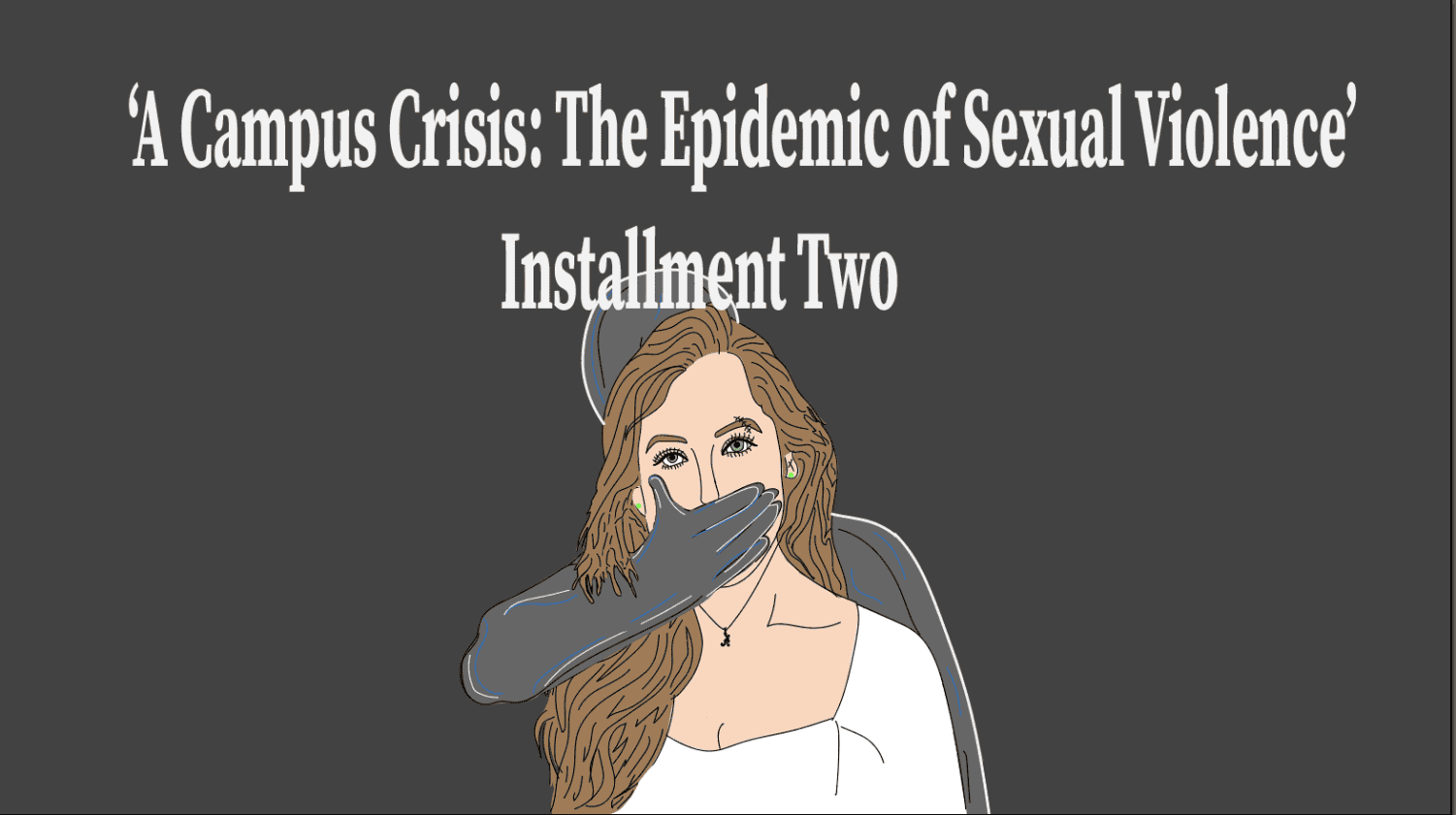Opinion | ‘A Campus Crisis’ Installment Two
This is the second installment in a five-part series about rape and sexual assault on college campuses. Over the course of this series, readers will hear from organizations dedicated to combating sexual violence on The University of Alabama’s campus. This installment highlights the Women and Gender Resource Center, whose mission is to “address gender inequity and foster a community that values social justice, safety, leadership, mentoring, education, multiculturalism, partnership and research.”
June 30, 2021
We need to correct our understanding of interpersonal violence.
To learn more about the series and the story that inspired it, click here.
In February 2020, I walked across the Quad in the middle of a storm, completely unprepared. As a Montana girl, I still hadn’t grasped the concept of a rainy winter. With my hair dripping wet and my suede boots soaked through, I entered Gorgas Library.
Just as I was unprepared for the storm that day, I walked into orientation unsure what to expect. I had no idea that my life was about to change.
Many people view February 2020 as an omen — the time right before it got bad. But for me, it was just about to get better. I was discovering my passion and purpose. I was walking into orientation to be a Women and Gender Resource Center ambassador.
During orientation, I learned about abuse in a comprehensive sense for the first time. In just an hour-long presentation, I learned of my fundamental misunderstanding of what interpersonal violence is. I began to immerse myself in understanding a complex issue that invited my attention, commitment and passion.
Before that point, I had fancied myself an activist in regard to sexual assault and domestic violence. It turned out that my perception of abuse was not only wrong; it was romanticized and cinematized.
Prior to the training I received, my concept of sexual violence was largely informed by media portrayals. My worldview had been fed to me by movies, TV shows and music, and I hadn’t even realized it.
This mass media consumption of abuse is wrong and dangerous. In media, we are shown a version of sexual violence that belittles real-world experiences. Through the lens of a camera, a serious issue is often distorted.
The messaging presented by the media is not just a form of entertainment. It is both a reflection of and a starting point for the establishment of cultural norms. It’s our responsibility to remind ourselves that interpersonal violence is a complex and widespread issue. We have to remain educated in order to support our friends and ourselves.
This is why campus resources on interpersonal violence are crucial. The WGRC serves as a necessary tool for both survivors of interpersonal violence and for others who wish to educate themselves on its reality. The WGRC validates personal experiences through its programs, advocacy and counseling.
In addition to addressing the needs of survivors, the WGRC aims to prevent interpersonal violence by deconstructing the norms that enable it and provides a safe space for every student through its programming.
Just as I became educated on sexual assault, other students need to as well. The WGRC allows students to become more familiar with a widespread issue that many don’t fully comprehend.
Through my involvement as a WGRC ambassador, I have had the opportunity to hear firsthand accounts that remind me of the individuality and personhood of survivors. I am reminded of how important it is that we have these services.
As college students, it is difficult to understand what options and resources are available. In the face of complex emotional experiences, students need a safe space to turn. As the WGRC conducts presentations, events and awareness programming, they are actively changing the world. Survivors become secure in the knowledge that they are not alone.
When we are educated by reputable sources, we are enabled to be better advocates.
All universities, including The University of Alabama, must highlight organizations like the WGRC so students are informed. If they don’t, students will brush the surface by looking solely to TV, movies and social media for the truth.
It is not a weakness or a fault to admit ignorance on matters of sexual violence. We all have more to learn about this issue. Ignorance is only harmful when we allow it to persist.
Everyone has a role in working to end interpersonal violence, and everyone has a role in supporting survivors. We may not be able to end interpersonal violence overnight, but we can have honest conversations about what’s happening and ensure that all survivors who need help are connected to resources.
I have included definitions of interpersonal violence terms and a list of resources. If these are new concepts or you have questions, I encourage you to attend a WGRC presentation or reach out to our staff.
The WGRC offers free and confidential counseling and advocacy for all members of our campus community.
Our advocacy services can help student survivors navigate the reporting process and provide support for challenges that may affect students after abuse or assault, including academic advocacy, personal advocacy and emotional support through legal and judicial processes.
Most importantly, when students go to the WGRC, their needs come first. Survivors get to make their own decisions every step of the way. They work with therapists and advocates to set goals that are important to them.
If you or someone you know is struggling with interpersonal violence, reach out to the WGRC or other professionals for counseling and advocacy. Everyone deserves to understand and feel validated in their experiences.
Definitions
Interpersonal violence is a term used to describe violence such as sexual assault, dating/domestic violence, stalking, harassment and child abuse.
Sexual assault is any sexual contact or sexual attention committed by force, threats, bribes, manipulation, pressure, tricks or violence. It includes rape, attempted rape, child molestation, incest and sexual harassment.
Domestic/dating violence includes a variety of behaviors such as degrading remarks, emotional abuse and physical abuse (such as punches, kicks, homicide, etc.). This is an attempt by one person in the relationship to control the other person. Often, we think about dating/domestic violence as just being physical, but it can be verbal and/or emotional. Dating/domestic violence is about power and control in the relationship. This can happen at any point in a relationship, and it’s not just limited to long-term relationships or marriages.
The Power and Control Wheel is a helpful tool to understand many of the dynamics of domestic and dating violence.
A general definition of stalking is a willful course of conduct involving repeated or continual harassment of another individual that causes the person to feel harassed, intimidated, frightened, terrorized or threatened. Behaviors may include following someone, showing up at the victim’s place of work, repeatedly calling, sending flowers or gifts, emailing or sending letters, breaking into the victim’s home and even homicide.
As members of our campus, we can access definitions online that are included as part of UA Title IX and Sexual Misconduct Policy here: UA Title IX and Sexual Misconduct Policy.
Resources
WGRC Contact Information
You can call the WGRC at (205) 348-5040 from 8 a.m. to 5:30 p.m. whenever UA offices are open. When UA offices are closed, you may call UAPD at (205) 348-5454 and ask to speak to a WGRC Victim Advocate who is on call 24/7 for crises, even on weekends and holidays.
The Tuscaloosa SAFE Center is available for medical and forensic exams after a sexual assault. You can call the SAFE Center at (205) 860-7233.
The National Domestic Violence Hotline provides free 24 hour services seven days a week. You can call the hotline at 1-800-799-SAFE (7233) or chat live at www.thehotline.org

